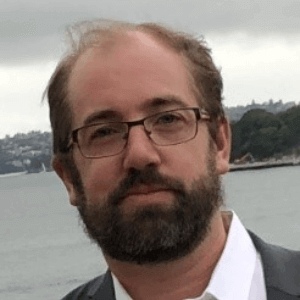Title : SLCA methodology applied to bio-based fertilizers from fisheries/aquaculture waste in the scope of the Sea2Land Project
Abstract:
The United Nations' 17 Sustainable Development Goals advocate for a circular economy, addressing social, environmental, and economic aspects of sustainability. Within this framework, the Horizon 2020 Sea2Land project endeavors to transform wastes and sidestreams from fisheries/aquaculture into bio-based fertilizers. While environmental life cycle assessment standards are established, the methodology for social life cycle impact assessment (sLCA) is still evolving. The UNEP guideline provides a foundation for rigor and comprehensiveness in data collection and treatment. It primarily uses qualitative or semi-quantitative indicators related to the well-being of all the stakeholders involved in the value chain of the life-cycle of a product. Our sLCA, adopting a UNEP type 1 or reference scale based method aligns indicators with recognized social standards or benchmarks. BBF production in the foreground level involves 3 or 4 organizations : the aquaculture/fishery, the fish processor/transformer, the BBF formulator and farmers. Leveraging tools like the Social HotSpot Database (SHDB) and common global and european databases, we obtain generic data, supplemented by semi-specific and specific data through expert viewpoints and stakeholder surveys. For (bio)-fertilizer producers to address social hotspots, the entire BBF production supply chain is considered, including suppliers of chemicals, biological materials and energy. Thus, for a BBF produced in France, certain generic indicators relating to health & safety, unemployment and migrant labor require special attention for both energy and chemical sectors. To focus on fertilizer companies, more fine-grained data can be obtained through specific public sources documenting social certifications such as the IFA (International Fertilizer Association), collective conventions, public commitments…. The data collected also show that the price given to fish waste has a significant contribution to the social impact of BBFs as does the origin of the other ingredients in biobased fertilizers. In a first approach, fish waste is considered as burden-free and should not endorse the social impacts of this sector. However, adherence to standards and certifications such as ASC (aquaculture stewardship council), MSC (Marine Stewardship Council), BAP (Best Aquaculture Practices ), GRI (Global Reporting Initiative) is a good indicator of social compliance. In conclusion, our sLCA methodology, rooted in recognized standards, offers a broad perspective on the social impacts of BBF production, acknowledging the involvement of diverse stakeholders and the significance of responsible sourcing.
Audience Take Away
- Audience could apply the presented methodology for other case studies, being more aware of responsible sourcing of their raw materials
- Audience can become more sensitive to social impacts and could improves many aspects of social impact categories as health & safety procedures, working conditions
- If another faculty is teaching sustainability this research deals with concrete case studies that could serve a more practical teaching.
- By integrating sLCA in global sustainability assessment, it is possible to remove barriers in the acceptance of their products.
- This will provide new information and help getting better accuracy in sLCA studies.



